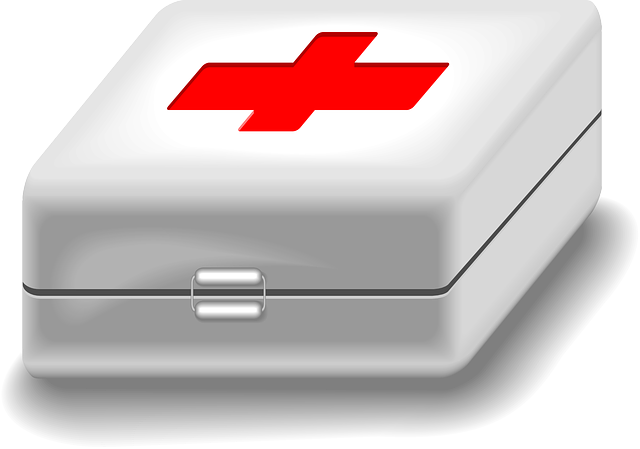Navigating Medical Document Translation Certification for UK Healthcare Integrity
The UK's healthcare system relies on accurate and culturally sensitive medical record translations provided by professional, accredited translators to ensure patient safety and effective care, especially within the context of the diverse popula…….

The UK's healthcare system relies on accurate and culturally sensitive medical record translations provided by professional, accredited translators to ensure patient safety and effective care, especially within the context of the diverse population served by the National Health Service (NHS). Certified Medical Record Translation UK services are essential for overcoming language barriers and complying with legal standards such as GDPR, ensuring that sensitive medical data is precisely conveyed across languages. These translations are critical for diagnosis, treatment planning, and ongoing patient care, and must be handled by experts proficient in both the source and target languages, including medical terminology specific to healthcare systems. The translation process involves rigorous quality assurance measures, including peer reviews and adherence to international data protection regulations, to maintain the confidentiality and integrity of patient information. By facilitating clear communication, these translations support informed treatment decisions, uphold patient trust, and foster high-quality care within the UK's healthcare sector. Healthcare providers must select translation services that are authorized to handle medical documentation, employ native-speaking professional translators with relevant certifications, and follow best practices for accuracy and compliance. This ensures that medical records translated through these services are dependable and support effective patient care across a multilingual society.
navigating the complexities of healthcare, particularly when patient care transcends language barriers. In the UK’s multicultural landscape, medical record translation is pivotal, ensuring clarity and safety for patients whose native tongue isn’t English. This article delves into the critical role of certified translations of foreign medical documents within the UK healthcare sector. It outlines the legal framework governing these translations, the importance of precise translation in cross-border patient care and data exchange, and the best practices for choosing a trustworthy medical document translation service provider in the UK. Further, it elucidates the rigorous process of certifying medical records to maintain compliance and uphold quality standards in the UK healthcare system, highlighting the indispensable nature of Medical Record Translation UK services in fostering effective patient care and safeguarding sensitive health information.
- Understanding the Necessity of Certified Medical Record Translation in the UK Healthcare Sector
- The Role of Accurate Translation in Cross-Border Patient Care and Data Exchange
- Navigating the Legal Framework for Certified Translations of Foreign Medical Documents in the UK
- Best Practices for Selecting a Reliable Medical Document Translation Service Provider in the UK
- Ensuring Compliance and Quality: The Process of Certifying Medical Records for Use in the UK Healthcare System
Understanding the Necessity of Certified Medical Record Translation in the UK Healthcare Sector

In the UK healthcare sector, the exchange and interpretation of medical records are pivotal for effective patient care, particularly in an increasingly diverse society. The necessity of certified medical record translation cannot be overstated when dealing with patients who do not have English as their first language. This is where the role of professional, accredited translators becomes indispensable. Certified medical record translation ensures that healthcare providers can access accurate and comprehensive patient information in a format that is both understandable and legally recognized within the UK. The process involves not only a linguistic exchange but also a cultural adaptation to maintain the integrity of the original document. This is crucial, as medical records often contain sensitive information critical for diagnosis, treatment plans, and ongoing care. Translators must be adept at navigating medical terminology, which often varies between languages, and possess a thorough understanding of the UK’s healthcare system to provide translations that are both precise and legally compliant. The use of certified translations helps in reducing miscommunication, improving patient safety, and fostering better health outcomes by facilitating clear communication across linguistic barriers. It is an essential component in the multicultural tapestry of the UK’s National Health Service (NHS), ensuring that every patient receives care that respects their language and cultural background while maintaining the highest standards of medical practice.
The Role of Accurate Translation in Cross-Border Patient Care and Data Exchange

In the realm of cross-border healthcare, the exchange and translation of medical documents are pivotal for effective patient care. Accurate Medical Record Translation UK plays an essential role in ensuring that patients receive consistent and safe treatment when moving between countries or seeking specialized care abroad. The precision of these translations is not just a matter of linguistic correctness but a critical aspect of patient safety, as medical terminology and guidelines can vary significantly across different healthcare systems. A mistranslation could lead to misunderstandings in treatment plans, misdiagnosis, or even adverse outcomes for patients. Therefore, it is imperative that all medical records undergo a professional translation process by certified translators who specialize in both the source and target languages, as well as possess a thorough understanding of medical terminology. This guarantees that patient information is accurately conveyed, facilitating seamless communication among healthcare providers and fostering better treatment outcomes.
Furthermore, with the increasing global mobility of patients and the digital exchange of health data, the demand for reliable Medical Record Translation UK services is on the rise. These translations are not only vital for patient care but also for compliance with legal requirements and international standards. Healthcare organizations must adhere to strict data protection regulations such as the General Data Protection Regulation (GDPR) in the UK, which underscores the necessity of secure and precise translation practices. By leveraging the expertise of certified translators, healthcare providers can bridge language barriers, ensuring that patient records are not only understood by all parties involved but are also legally compliant and protected against unauthorized access or misinterpretation. This level of accuracy and adherence to regulations is crucial for upholding the integrity of cross-border patient care and maintaining the trust between patients and healthcare providers.
Navigating the Legal Framework for Certified Translations of Foreign Medical Documents in the UK

In the UK, the translation of foreign medical documents into English for healthcare use is governed by a stringent legal framework designed to ensure patient safety and data confidentiality. This framework requires that all translated medical records be certified for accuracy and authenticity. Certified translations must adhere to the standards set out in the General Data Protection Regulation (GDPR) and the UK’s Data Protection Act 2018, which safeguard personal data. Translators undertaking this task must possess professional certification, often demonstrated through membership of a relevant association like the Institute of Translation and Interpreting (ITI) or the Chartered Institute of Linguists (CIOL). These bodies ensure their members are trained to handle sensitive information with the utmost care and precision. Medical Record Translation UK services that comply with these regulations are integral for healthcare providers to deliver informed treatment to patients with international medical histories, thereby improving health outcomes and patient care standards across the nation.
The process of obtaining a certified translation involves not only linguistic proficiency but also a thorough understanding of medical terminology and the specific context in which the documents were issued. Translators must provide an accompanying statement confirming that the translated content is accurate, complete, and equivalent to the original text. This statement, often referred to as a certificate of translation, becomes part of the patient’s health records. Additionally, healthcare providers must verify the credentials of the translator and ensure that the translation service has proper authorization to handle medical documents within the UK’s healthcare system. This meticulous approach is essential for maintaining the integrity and reliability of foreign medical documents in the UK, ensuring they meet the high standards required for patient treatment and record-keeping.
Best Practices for Selecting a Reliable Medical Document Translation Service Provider in the UK

When healthcare providers in the UK require medical record translations, selecting a reliable and accurate translation service is paramount. The accuracy of translated documents directly impacts patient safety and the quality of care they receive. Therefore, it’s crucial to choose a service provider with specialized expertise in medical document translation UK. Look for agencies that offer certified translations compliant with the Medical Device Regulation (MDR) and In Vitro Diagnostic Regulation (IVDR), ensuring adherence to stringent industry standards. A provider with a proven track record in the healthcare sector, familiar with both the intricacies of medical terminology and the nuances of legal requirements for document translations in the UK, will be best equipped to handle such sensitive tasks. Additionally, consider a service that employs professional translators who are native speakers and hold relevant certifications, such as the Certified Translator by the Institute of Translation and Interpreting (ITI) or the Association of Translation Companies (ATC). This guarantees not only linguistic proficiency but also an understanding of the cultural context, which is essential for accurate translation.
To ensure the highest level of service, verify that the medical document translation UK service provider has robust quality assurance processes in place. This includes a system of checks and verifications by expert translators and reviewers, often with a medical background, to validate the authenticity and precision of each translated document. Furthermore, the chosen service should demonstrate transparency in its processes, provide clear timelines for delivery, and offer support for both the submitter and the recipient of the translated documents. By adhering to these best practices, healthcare providers can confidently engage with a translation service that upholds the integrity and confidentiality of medical records, thereby safeguarding patient care and compliance with legal requirements in the UK.
Ensuring Compliance and Quality: The Process of Certifying Medical Records for Use in the UK Healthcare System

In the UK healthcare system, the accuracy and compliance of medical record translation are paramount for patient safety and effective care delivery. The process of certifying medical records for use within this context involves a meticulous approach to ensure that all translations meet the stringent standards set by regulatory bodies such as the NHS and the UK’s Medicines and Healthcare products Regulatory Agency (MHRA). Translators specializing in Medical Record Translation UK must possess not only linguistic proficiency but also a deep understanding of medical terminology and practices. This dual expertise enables them to provide precise translations that convey the nuances of the original documents accurately, maintaining the integrity of patient information across different languages. The certification process further involves rigorous quality checks, including peer reviews and the use of translation memory software to guarantee consistency and accuracy. By adhering to these standards, certified translations ensure that healthcare providers have access to reliable medical records, facilitating informed decision-making and high-quality patient care in a multilingual society.
To safeguard the integrity of patient data, each Medical Record Translation UK undergoes a series of validation steps. These steps are designed to confirm the document’s authenticity and ensure it aligns with the original text in terms of both meaning and medical context. The certification seal is affixed only after thorough scrutiny by qualified translators and reviewers who verify that the translation complies with all legal and professional requirements set forth by UK law. This commitment to quality assurance and compliance is critical for healthcare professionals who rely on these documents to deliver appropriate care and treatment to patients from diverse linguistic backgrounds. The end result is a translation that stands as a reliable substitute for the original medical records, enhancing cross-cultural communication within the UK’s healthcare sector.
In conclusion, the facilitation of medical record translation within the UK healthcare sector is a critical component that not only supports the provision of equitable patient care but also ensures compliance with legal and ethical standards. As the UK continues to be a melting pot of cultures and languages, the necessity for proficient and certified translations of foreign medical documents cannot be overstated. Healthcare providers and patients alike benefit from the precise and legally sound translation services that adhere to the stringent requirements set forth by the UK’s regulatory framework. By following best practices when selecting a medical document translation service provider, stakeholders can navigate the complexities of cross-border healthcare with confidence, ensuring accurate data exchange and upholding the integrity of patient care. It is clear that the role of medical record translation in the UK is indispensable, fostering an inclusive and effective healthcare environment for all individuals, regardless of their language or origin.





